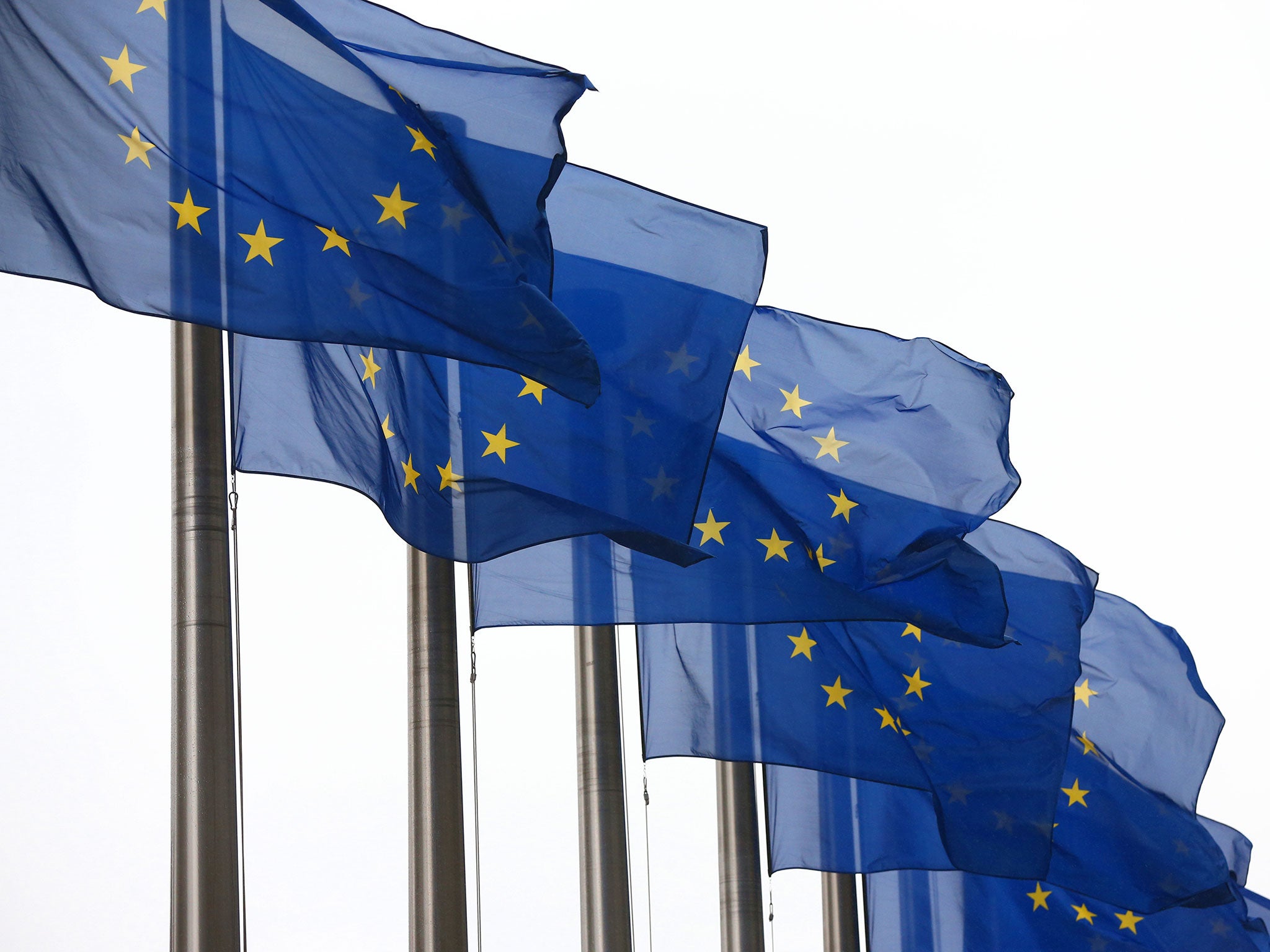Kenneth Clarke: Eurosceptics are working against British interests
Far too often the coverage of the European debate in our media reads like reports from a distant war front. Those who want out have been allowed to set the agenda

Your support helps us to tell the story
From reproductive rights to climate change to Big Tech, The Independent is on the ground when the story is developing. Whether it's investigating the financials of Elon Musk's pro-Trump PAC or producing our latest documentary, 'The A Word', which shines a light on the American women fighting for reproductive rights, we know how important it is to parse out the facts from the messaging.
At such a critical moment in US history, we need reporters on the ground. Your donation allows us to keep sending journalists to speak to both sides of the story.
The Independent is trusted by Americans across the entire political spectrum. And unlike many other quality news outlets, we choose not to lock Americans out of our reporting and analysis with paywalls. We believe quality journalism should be available to everyone, paid for by those who can afford it.
Your support makes all the difference.Two years ago the Prime Minister made his seminal Bloomberg speech on Europe. The speech was hailed as “extraordinary” and “historic” by Conservative Eurosceptics and even by Mark Reckless (now of Ukip’s parish) for its promise of an in/out referendum. He also set out a series of demands for EU reform from completion of the single market to the end of ever closer union. Most politicians and journalists remember the referendum proposal but not the shopping list. It may come as a shock to both that all those demands are now accepted by all member states.
David Cameron asked for a commitment to economic reforms to improve Europe’s competitiveness, such as completing the single market, extending it to services and the digital economy as well as the energy field. He called for “transformative trade deals” with the US and other economic powerhouses, for a curb in excessive red tape, and “a leaner, less bureaucratic Union” focused on growth. The PM also asked for flexibility. He called for a change in the language of “ever closer Union” in the preamble to the Treaty and an honest re-assessment about what the EU should and should not do, as well as for more involvement of national parliaments in EU scrutiny. He also called for fairness, to ensure that “whatever new arrangements are enacted for the Eurozone, they must work fairly for those inside it and out”.
All of those five areas of reform have since then been agreed to in principle by our European partners. All 28 leaders signed up to a strategic agenda for the EU encompassing many of them last June and the new European Commission embraced them concretely in its 2015 work plan. They all agree with us that the focus of EU should be jobs and growth, that the single market ought to be completed, and the digital economy boosted. The new Commission has committed to very few new regulatory measures for 2015 and jettisoned many others that were not going anywhere. There is a new dedicated commissioner for Energy Union. A Brit, Jonathan Hill, has been handed the financial services portfolio, to assuage fears that future Eurozone measures would damage the City.
This is all good news for organisations like British Influence, the cross-party pro-EU campaign of which I am co-president and which is also about to celebrate its second anniversary this week.
It demonstrates that reforming pro-European British politicians have allies, that they share many of our concerns and that they are willing to be flexible over issues that particularly concern us as they do not want to see Britain leave the EU. But the work is far from over, the reforms are far from done: now is the time to pursue them.
Instead far too often the coverage of the European debate in our media reads like reports from a distant war front. Those who want out have been allowed to frame the debate. The talk is now of red lines, of Treaty change at all costs, backed by threats of Brexit.
Meanwhile, Labour stays largely silent on Europe, only intervening opportunistically to score political points against the Government.
David Cameron said two years ago that for us Britons the EU is “a means to an end - prosperity, stability, the anchor of freedom and democracy both within Europe and beyond her shores - not an end in itself.”
For those who want out, Brexit remains an end in itself, regardless of what is in the interest of our society, in terms of prosperity, security and influence on the wider world stage. They have a right to their opinions, of course, but they must not be allowed to colonise all other opinion, to dominate the entire European debate with their gleeful defeatism.
If we are honest about our desire of striving for a better Europe, of which we still want to be part, we must negotiate for it and celebrate progress when it occurs. We must resist hard-line Eurosceptic pressure to move the goalposts and to issue ultimatums. The serious work in the national interest is to deliver the Bloomberg speech demands.
Kenneth Clarke is co-president of the cross-party pro-European group British Influence
Join our commenting forum
Join thought-provoking conversations, follow other Independent readers and see their replies
Comments